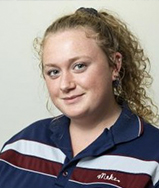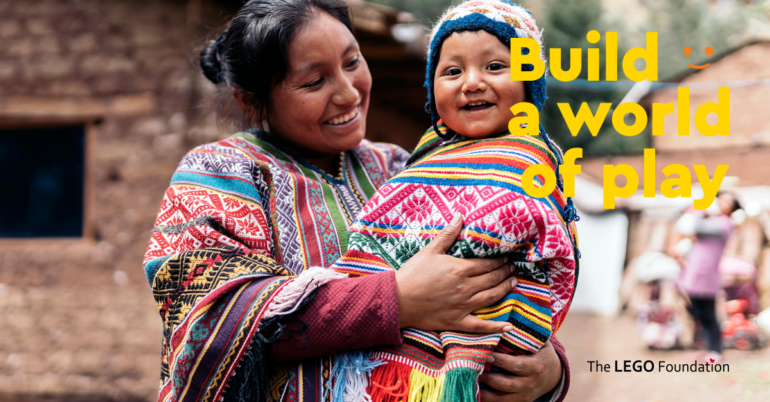Play is a fundamental aspect of positive childhood development, and access to resources and materials that encourage play and spur curiosity and growth plays a fundamental role in outcomes during this critical phase. Unfortunately, this access is limited for many families. But this does not have to be the norm.
To combat this inequity in childhood development, the LEGO Foundation launched the Build a World of Play Challenge — designed and managed by Lever for Change. This initiative will award DKK 900 million (approximately USD 117 million) “to support substantial contributions to the lives of children from birth to six years old.” Additionally, they aim to prioritize early childhood development by igniting an international movement that advocates for childhood equity.
In October, the LEGO Foundation announced the ten finalists that will potentially bring their vision to fruition for the betterment of children worldwide. Finalists were vetted based on four criteria, that their projects be: impactful, feasible, community-centered and sustainable. Proposal themes include, “Empowering Disabled Children to Play via Early Assistive Technology Access,” “Scaling Community-Led Learning Through Play for Refugee Children,” to name a few of the varied pitches.
From the Challenge website, finalists are detailed as:
- Akili Family: Localised Play-Based Learning for African Families & Communities: Ubongo International will scale Akili Family, educational entertainment programs that air in African languages on TV, radio, and digital platforms, to support at-home learning through play for children and their caregivers.
- Care to Play: Early Education for Pathways Out of Poverty: Indus Action, Saajha, Trickle Up, Rocket Learning, and IDinsight are partnering with a shared mission: the Care to Play program will provide capabilities of caregiving and opportunities for early education for more than five million vulnerable children in India, resulting in pathways out of poverty.
- Catalyzing REAL Fathers across Uganda for Early Learning and Play: Impact and Innovations Development Centre and partners will teach positive parenting and non-violent discipline to reinforce positive fatherhood norms, thereby reducing violence and empowering children in Ugandan communities.
- Empowering Disabled Children to Play via Early Assistive Technology Access: Clinton Health Access Initiative will empower disabled children to play and thrive, by supporting sustainable and community-led government programs to provide early screening and life-changing assistive technology in eight countries.
- GogoPlay: Ecosystems of Play for Children in Rural South Africa: IRD Global will build ecosystems for early childhood development in rural South Africa by upskilling women, especially grandmothers (gogos), in play and wellbeing within villages and co-creating centralized playhouses.
- Leverage Box: Game 4 All: ASAM-SGDD has designed the “Leverage Box: Game 4 All”: a community-based intervention program to democratize play therapy and make it accessible for all preschool-aged refugee and host community children.
- Lively Minds: Empowering Rural Communities to Help their Children Thrive: Lively Minds, the Institute for Fiscal Studies, and the Education Commission plan to scale a proven, low-cost, community-run program to improve early childhood care and education for two million rural preschoolers in Uganda and Ghana.
- PLAYFVL: Play and Language Access for Your Family through Visual Learning: The partnership between Motion Light Lab and SKI-HI Institute supports and mentors families with children who are deaf to find joy in play and visual learning.
- Reclaiming Indigenous Children’s Futures through Home-Visiting and Intergenerational Playspaces: Johns Hopkins Center for Indigenous Health and partners worldwide will scale culture-based home education and intergenerational playspaces for the well-being of Indigenous children and families.
- Scaling Community-Led Learning through Play for Refugee Children: Cohere, in partnership with refugee-led organizations, will scale a learning through play program for refugee children to improve their literacy, numeracy, technology, social, and emotional skills.
While this initiative has seen great success, it can always use more support. To get involved with the Build a World of Play Challenge, consider:
- Providing additional funding to the Challenge or the finalists. Interested donors should contact Dana Rice, Vice President of Philanthropy at Lever for Change.
- Share information about the Challenge and finalists in your network or with others who might be interested.
- Discuss the Challenge and finalists on your social media channels, don’t forget to tag Lever for Change and the LEGO Foundation, and use #BuildAWorldOfPlay #EarlyChildhood #LeverforChange.
“Collectively, these teams will shape the lives of millions of children globally through ambitious, optimistic and game-changing projects,” Lever for Change states.
For more information on how to help or to learn more about the finalists, visit the Lever for Change website.
More from Better:
- How Do Students Bounce Back from a Pandemic-Induced Academic Slump? Academic Approach Presents Stats and Expert Strategies
- 5 Education Tips and Insights from Purdue University President and Former Indiana Governor Mitchell E. Daniels, Jr.
- How Much Harm Did the Pandemic Do to Our Kids — and What We Can Do About It? ‘The Stolen Year’ Author Anya Kamenetz Answers Our Questions

Margaret Smith is a Chicago-based writer and editor with a passion for socio-political storytelling about their community. They are a graduate of Columbia College Chicago.

